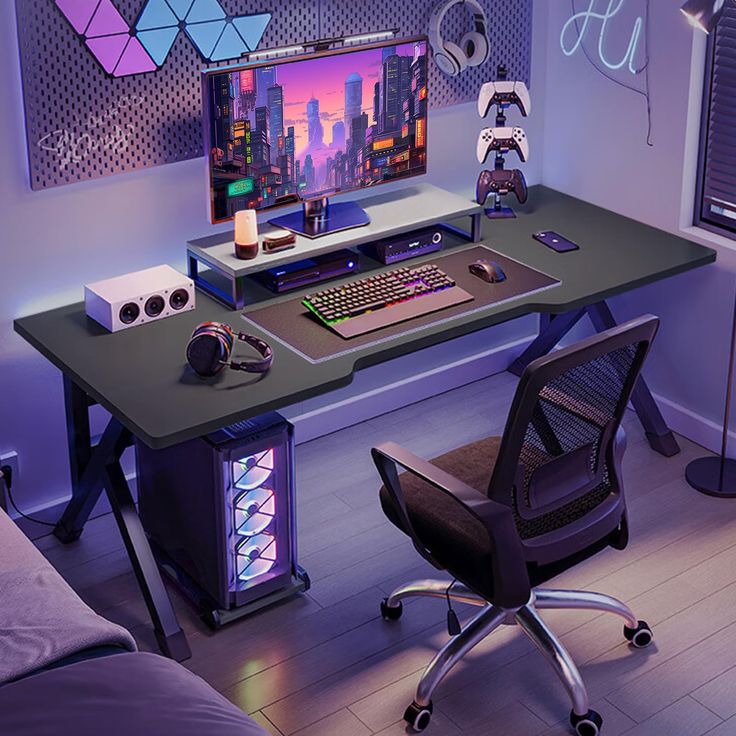Building a high-performance gaming desktop can be an exciting yet overwhelming task, especially with the plethora of options available gaming desktop. To help streamline your decision-making process, we’ve compiled a comprehensive guide on selecting the right components that will elevate your gaming experience.

1. Central Processing Unit (CPU)
The CPU is often considered the brain of your gaming rig. When choosing a CPU, you’ll want to consider both performance and compatibility with other components.
Recommendations:
- AMD Ryzen 5 or 7: Excellent multi-core performance for gaming and multitasking.
- Intel Core i5 or i7: Great single-thread performance, ideal for games that don’t utilize multiple cores heavily.
Tip: Look for CPUs with higher clock speeds and more cores for future-proofing.
2. Graphics Processing Unit (GPU)
The GPU is arguably the most critical component for a gaming desktop. It dictates your ability to run games at high resolutions and frame rates.
Recommendations:
- NVIDIA GeForce RTX 3060 or 3070: Great performance for 1080p and 1440p gaming, with ray tracing capabilities.
- AMD Radeon RX 6700 XT: A solid competitor that offers excellent performance and value.
Tip: Pay attention to VRAM; 8GB is generally a good starting point for modern gaming.
3. Motherboard
Your motherboard connects all your components, so it’s crucial to select one that fits your CPU and has the features you need.
Recommendations:
- For AMD CPUs: Look for B550 or X570 chipsets for better performance and future upgrade options.
- For Intel CPUs: Z490 or Z590 motherboards will provide excellent features.
Tip: Ensure the motherboard has enough ports for your needs, including USB, Ethernet, and possibly Wi-Fi.
4. Memory (RAM)
RAM is essential for multitasking and smooth gameplay.
Recommendations:
- 16GB DDR4: This is the sweet spot for gaming.
- 32GB DDR4: Ideal for heavy multitaskers or those who run demanding applications alongside games.
Tip: Opt for higher frequency RAM (3200MHz or above) for improved performance.
5. Storage
Storage can significantly affect load times and overall system responsiveness.
Recommendations:
- SSD (Solid State Drive): A 500GB or 1TB NVMe SSD for your operating system and most-played games will offer the best performance.
- HDD (Hard Disk Drive): A secondary 1TB or larger HDD for additional storage can be useful for games and media files.
Tip: Consider an M.2 NVMe SSD for faster speeds compared to traditional SATA SSDs.
6. Power Supply Unit (PSU)
The PSU powers all your components, so it’s vital to choose one that is reliable and efficient.
Recommendations:
- At least 80 Plus Bronze certification: Ensures efficiency and reliability.
- Wattage: Choose a PSU with at least 600W to accommodate your components, with some headroom for future upgrades.
Tip: Modular PSUs can help with cable management, making your build look cleaner.
7. Cooling Solutions
Keeping your components cool is essential for performance and longevity.
Recommendations:
- Air Coolers: High-performance air coolers can keep your CPU cool while being quieter than stock options.
- Liquid Cooling: All-in-one liquid coolers can be effective for overclocking and aesthetic builds.
Tip: Ensure your case has good airflow and space for your cooling solution.
8. Case
The case houses all your components and impacts airflow and aesthetics.
Recommendations:
- Mid-Tower Cases: Offer a good balance between size and expansion options.
- Full-Tower Cases: Ideal for larger builds or if you plan to include more components.
Tip: Look for cases with good airflow design and space for additional fans.
Conclusion
Building a high-performance gaming desktop is all about selecting the right components that match your gaming needs and budget. By focusing on quality over quantity and ensuring compatibility, you’ll create a system that not only performs well but also stands the test of time.